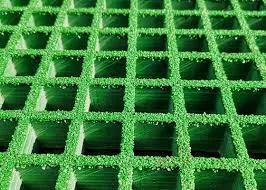
-
 Afrikaans
Afrikaans -
 Albanian
Albanian -
 Amharic
Amharic -
 Arabic
Arabic -
 Armenian
Armenian -
 Azerbaijani
Azerbaijani -
 Basque
Basque -
 Belarusian
Belarusian -
 Bengali
Bengali -
 Bosnian
Bosnian -
 Bulgarian
Bulgarian -
 Catalan
Catalan -
 Cebuano
Cebuano -
 China
China -
 China (Taiwan)
China (Taiwan) -
 Corsican
Corsican -
 Croatian
Croatian -
 Czech
Czech -
 Danish
Danish -
 Dutch
Dutch -
 English
English -
 Esperanto
Esperanto -
 Estonian
Estonian -
 Finnish
Finnish -
 French
French -
 Frisian
Frisian -
 Galician
Galician -
 Georgian
Georgian -
 German
German -
 Greek
Greek -
 Gujarati
Gujarati -
 Haitian Creole
Haitian Creole -
 hausa
hausa -
 hawaiian
hawaiian -
 Hebrew
Hebrew -
 Hindi
Hindi -
 Miao
Miao -
 Hungarian
Hungarian -
 Icelandic
Icelandic -
 igbo
igbo -
 Indonesian
Indonesian -
 irish
irish -
 Italian
Italian -
 Japanese
Japanese -
 Javanese
Javanese -
 Kannada
Kannada -
 kazakh
kazakh -
 Khmer
Khmer -
 Rwandese
Rwandese -
 Korean
Korean -
 Kurdish
Kurdish -
 Kyrgyz
Kyrgyz -
 Lao
Lao -
 Latin
Latin -
 Latvian
Latvian -
 Lithuanian
Lithuanian -
 Luxembourgish
Luxembourgish -
 Macedonian
Macedonian -
 Malgashi
Malgashi -
 Malay
Malay -
 Malayalam
Malayalam -
 Maltese
Maltese -
 Maori
Maori -
 Marathi
Marathi -
 Mongolian
Mongolian -
 Myanmar
Myanmar -
 Nepali
Nepali -
 Norwegian
Norwegian -
 Norwegian
Norwegian -
 Occitan
Occitan -
 Pashto
Pashto -
 Persian
Persian -
 Polish
Polish -
 Portuguese
Portuguese -
 Punjabi
Punjabi -
 Romanian
Romanian -
 Russian
Russian -
 Samoan
Samoan -
 Scottish Gaelic
Scottish Gaelic -
 Serbian
Serbian -
 Sesotho
Sesotho -
 Shona
Shona -
 Sindhi
Sindhi -
 Sinhala
Sinhala -
 Slovak
Slovak -
 Slovenian
Slovenian -
 Somali
Somali -
 Spanish
Spanish -
 Sundanese
Sundanese -
 Swahili
Swahili -
 Swedish
Swedish -
 Tagalog
Tagalog -
 Tajik
Tajik -
 Tamil
Tamil -
 Tatar
Tatar -
 Telugu
Telugu -
 Thai
Thai -
 Turkish
Turkish -
 Turkmen
Turkmen -
 Ukrainian
Ukrainian -
 Urdu
Urdu -
 Uighur
Uighur -
 Uzbek
Uzbek -
 Vietnamese
Vietnamese -
 Welsh
Welsh -
 Bantu
Bantu -
 Yiddish
Yiddish -
 Yoruba
Yoruba -
 Zulu
Zulu
Composite Piping Solutions for Enhanced Durability and Performance in Industrial Applications
Understanding FRP Piping Systems A Comprehensive Overview
Fiberglass Reinforced Plastic (FRP) piping systems have emerged as one of the most efficient and durable solutions for various industries, ranging from wastewater treatment to chemical processing. These systems offer a unique combination of strength, corrosion resistance, lightweight properties, and ease of installation, making them a preferred choice over traditional materials such as steel or PVC.
What is FRP?
FRP is a composite material made of a polymer matrix reinforced with fibers, primarily glass fibers. This combination provides a remarkable balance of mechanical strength and chemical resistance. The matrix material is typically a thermosetting resin, such as epoxy, polyester, or vinyl ester, which cures to form a rigid structure. The glass fibers add tensile strength, while the resin provides the overall integrity of the system.
Advantages of FRP Piping Systems
1. Corrosion Resistance One of the standout features of FRP piping is its exceptional resistance to a wide range of corrosive substances. Unlike metal pipes that can degrade in harsh environments, FRP can withstand exposure to acids, alkalis, solvents, and seawater, making it suitable for chemical processing plants, marine applications, and wastewater treatment facilities.
2. Lightweight FRP piping is significantly lighter than traditional piping materials, which simplifies transportation and installation. This lightweight nature also reduces the load on supporting structures and makes handling easier, particularly in hard-to-reach areas.
3. Durability The high strength-to-weight ratio of FRP allows it to withstand high internal pressures and impacts, making it a reliable choice for high-demand systems. Additionally, FRP pipes are less prone to rupture or failure compared to their metal counterparts.
4. Low Thermal Conductivity FRP has low thermal conductivity, which minimizes heat loss or gain during fluid transport. This property is particularly advantageous in applications requiring temperature control, as it helps maintain the desired temperature of the transported fluids.
frp piping system

5. Ease of Installation The lightweight nature of FRP pipes allows for easier installation compared to heavier materials. Furthermore, the modular design and availability of various jointing methods lead to faster project timelines, reducing labor costs.
6. Flexibility FRP piping systems can be fabricated in various shapes and sizes, adapting to different project requirements. This flexibility enables engineers to design customized solutions that fit unique applications.
Uses of FRP Piping Systems
FRP piping systems are widely used in various applications, including
- Chemical Processing Due to their corrosion resistance, FRP pipes are extensively used in the chemical industry for transporting caustic and acidic materials. - Water and Wastewater Treatment The durability and resistance to corrosion make FRP pipes suitable for carrying water, as well as for sewage and wastewater applications.
- Marine Applications In shipbuilding, FRP is preferred for its lightweight properties, making it ideal for onboard piping systems that require both strength and weight management.
- Oil and Gas FRP is used in upstream and downstream applications, particularly for transporting corrosive fluids and gases, where metal pipes would be susceptible to corrosion.
Conclusion
In conclusion, FRP piping systems offer a host of advantages that make them an excellent choice for a myriad of applications. Their inherent resistance to corrosion, lightweight design, and durability make them ideal for challenging environments where traditional piping materials may fail. As industries continue to seek innovative solutions to meet operational challenges, FRP piping systems are poised to play a significant role in the future of fluid management systems. Understanding the benefits and applications of FRP can help businesses make informed decisions when upgrading or designing their piping infrastructure, ultimately leading to enhanced efficiency and sustainability.









